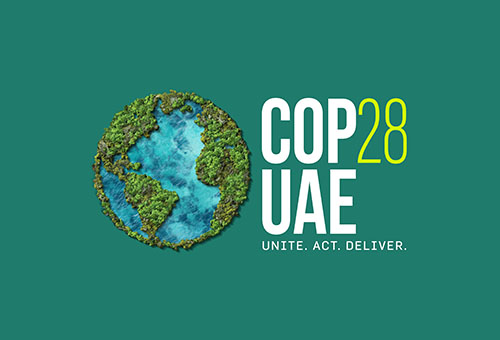Investing in what matters: Insights from COP28, part 2
What role do governments play?
In the pursuit of decarbonization, navigating challenges in developing countries requires a coordinated effort from both international and national governments. The international community influences decarbonization efforts in developing nations by establishing frameworks and incentive programs; regions like the EU and Canada have demonstrated success in expediting the adoption of green technologies through supportive policies and financial incentives.
International governments should also encourage the exchange of insights, even if it means sharing lessons learned and promoting open innovation. Collaboration on shared knowledge, as seen in the early days of carbon capture technology, showcases the importance of open communication in advancing global decarbonization.
National governments in developing regions play a crucial role in providing stability and clarity in decision-making processes. This is essential for attracting long-term investments, especially in industries with significant infrastructure and energy requirements. They also require international recognition and support; developed countries should acknowledge and support nations that prioritize stability and a clear vision for the future. Recognition can come in the form of indirect support, such as mitigating risks for investors in these regions, or direct financial support and capital investment in research and technology.
Balancing regulation and innovation
There’s a delicate balance to be struck between government-imposed regulation to drive change and allowing industry to innovate to achieve the same goals (e.g. reducing carbon emissions). Governments need to act as enablers, removing barriers to entry for new technologies. Trade commissioner services and think tanks can facilitate the dissemination of knowledge, ensuring that best practices are widely understood.
Policies around carbon pricing play a pivotal role in shaping the feasibility of decarbonization initiatives, and clarity in pricing and adhering to timelines are crucial for businesses to build financially viable decarbonization projects. Government-led initiatives can raise awareness and educate the public on the importance of adopting sustainable practices; by acting as a catalyst for change, governments extend beyond regulatory bodies and frameworks to encompass financial support, knowledge dissemination, and the establishment of clear, long-term visions. And finally, by fostering international collaboration and supporting stability in developing regions, they can contribute significantly to the acceleration of decarbonization on a global scale.

Empowering communities: The energy industry’s role in social value and socio-economic growth
The journey toward decarbonization isn’t just about reducing emissions; it’s also about embedding social value and fostering socio-economic growth. There are some key drivers propelling change and influencing the industry’s commitment to the work they’re doing.
As engineers, we take a technological lens to creating safe, sustainable solutions, and it’s through this lens that we need to examine the impact of the mining and metals industry. While the energy transformation demands increased production of minerals and metals for technologies like electric vehicles, battery storage, solar panels, and wind generation, the mining industry must acknowledge the responsibility to produce these materials in a carbon-safe way, aligning with broader environmental goals.
Recognizing the social pressure surrounding these initiatives, mining and metals organizations aim to secure a “social license to operate.” The industry understands that attracting talent, especially from younger generations, requires a visible commitment to environmentally progressive and socially acceptable practices. Beyond producing clean minerals, the industry is recognizing the importance of becoming green within its own operations. This desire has prompted an evaluation of processes, ensuring that the production of clean minerals aligns with sustainable practices from start to finish.
By adapting to modern times, organizations can stay relevant and not only align with social expectations but contribute positively to the communities they serve. They can go beyond reducing emissions and actively contribute to societal well-being. Through clean practices in mining and metal production, aligning with the global green transition, and responding to the social push for environmentally progressive operations, the industry has the potential to embed significant social value and contribute to the socioeconomic growth of communities worldwide.
What’s next?
Taking a long-term view on emerging technologies is pivotal. The urgency to meet aggressive targets should not compromise the integrity of solutions; it’s vital to avoid half-baked solutions in favor of robust framework that truly addresses core issues, and to balance the need for immediate action with the wisdom to foster enduring solutions.
By investing in ongoing research and development, we as an industry, can continue to focus on creating and implementing cutting-edge technologies that enhance sustainability, reduce emissions, and promote clean energy. The adoption of circular economy principles gives us as engineers an opportunity to design systems that minimize waste, promote recycling, and ultimately, contribute to sustainable practices.
Contact our experts to learn more about the initiatives that are underway following COP28, and to find out how we can implement tomorrow's changes today.

COP28: Changing climate, innovating solutions
- Accessing decarbonization technologies–a timely topic
- Navigating the path to corporate integrity and net-zero commitment
- Meeting the challenge of decarbonizing the world's ports
- Navigating the social seas in the race to net-zero
- Navigating the evolution of sustainable finance
- Investing in what matters: Insights from COP28, part 1

Karen Dingley
Regional Director, Environment & Sustainability
Karen Dingley is a chartered civil engineer with 30 years of experience in major multidisciplinary and strategic project management, environmental and water engineering, and integrated water management. As the Regional Director of Environment & Sustainability at Hatch, based in the London, UK office, she oversees operations in Europe, Africa, India, and the Middle East. Karen has successfully applied her skills internationally, assisting government, investors, mining, and industry clients to meet legislative requirements, promote economic growth, and address environmental, health & safety, and operational risks. She is an experienced senior project manager and team leader.
